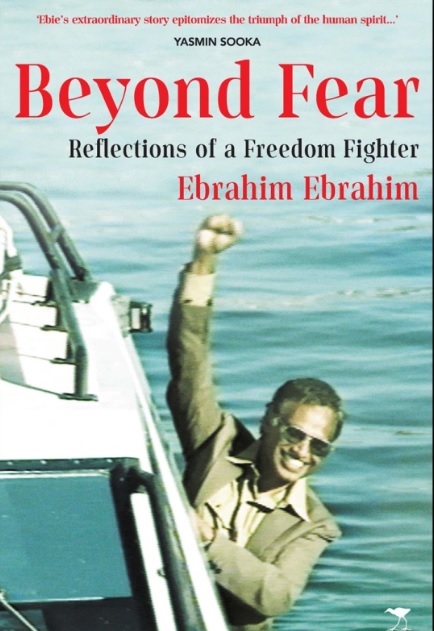Johannesburg – Beyond Fear tells the true story of South African anti-apartheid activist Ebrahim Ismail Ebrahim. Ebrahim’s memoirs speak about his personal struggles and the struggle to attain freedom in South Africa.
Ebrahim was imprisoned on Robben Island twice during his lifetime. Shannon Ebrahim, his wife, detailed a few incidents of how harsh life was in the prison. Ebrahim and others suffered at the hands of prison officials and received little to no medical treatment. Ebrahim’s story about the red handkerchiefs is a favourite.
“A lot of them would get sick with cold and flus and I believe in the early days there was a hunger strike to try and get something to blow their nose. They were perpetually ill and there wasn’t very good medical care. After this hunger strike, the authorities capitulate, and they decide to get a big piece of red material. This story I call the red handkerchiefs. They cut the red material into these strips and would wash this strip in the shower or the basin. They hung these strips to dry on the cell grill.”
At the end of the week, the prison Major came around. Believing the prisoners had tricked the guards. He demanded they remove the red strips as he believed they were “flying the red flag”. That was the end of them having anything to blow their noses with.
During Covid times, Mrs. Ebrahim recalled telling her husband how things such as toilet paper had become so expensive. His reply provided more insight into how deprived prisoners were.
“He said ‘In the early days we had no toilet paper. We would have to tear pieces of cement bags from around the prison and leaves and use that.’ We cannot even imagine that level of deprivation on the island.”
The conditions prisoners survived in
Ismail Ebrahim arrived at Robben Island before Nelson Mandela. His description of how prisoners used to sleep is telling of how little the government thought of them.
“They were sleeping eighty to a cell. Sleeping on the cement floor. Each person with three thread bare blankets. Always freezing cold. They never had underwear, they never had pyjamas. They slept with nothing because they didn’t want to sleep in their dirty work clothes. Their work clothes from the quarry only got washed on a Saturday. Every day they wore the same clothes.”
Ebrahim left his family to fight for the nation’s freedom
For the most part of his life Ismail Ebrahim did not know where his home was. This is a constant note in the book. Having lived with his grandmother he was then caught up in fighting the apartheid government. He was constantly running from the apartheid police, from safe house to safe house, and running across the borders. At the end he imprisoned. His first real experience of home is when he met his wife.
Ebrahim explained it was this longing to have a real home that created the intense love that Ismail Ebrahim had for his two children. He had his first child when he was sixty-nine and he was seventy one when he had his second child.
Emerging from prison without bitterness sewn into his heart
Fighting the apartheid government came with consequences. Many activists were killed in prison while others succumbed to the torture and the beatings and turned on their colleagues. Through it all, Ismail Ebrahim managed to take the beating and emerge without a hint of bitterness in his heart. Kgalema Motlanthe, former President, explained they were optimistic people at heart which allowed them to stay the same.
“We, in a sense, knew our cause and these people who have their boots on our necks do so because they themselves are driven by fear. They know that tomorrow does not belong to them. We had to show moral ascendency and our humanity helped us go through those difficult moments.”
Ismail Ebrahim passed away on 6 December 2021. Just a few months before the book was released. The book itself has been hailed as one that shines light on what apartheid truly was for activists who chose to give up their life so that the country could be free. The events are incredibly detailed and gives a true sense of life in prison on Robben Island.


